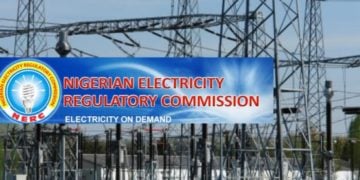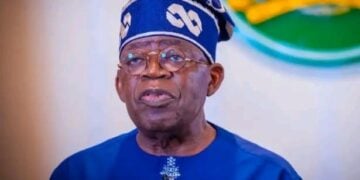The Senate has called on the Transmission Company of Nigeria (TCN) and the Nigerian Electricity Regulatory Commission (NERC) to immediately suspend the World Bank funded NMMP Phase 2 in order to undertake a comprehensive review of the procurement criteria to prioritise local manufacturing and assembling.
The Senate also mandated TCN and NERC to look towards the Central Bank of Nigeria (CBN) intervention funds or engage the African Export-Import Bank (AFREXIM).
This followed a motion sponsored by Sen Victor Umeh, Anambra Central on the urgent need to protect local meter manufacturers in the ongoing national mass metering programme of the federal government.
This is as the House of Representatives at plenary on yesterday took steps to stop the planned electricity tariff hike by Distribution Companies (DISCOS).
Consequently, the House urged the National Electricity Regulatory Commission (NERC) not to approve any increase in electricity tariff in Nigeria.
According to the Senate, things should be done inline with the local content and backward integration policy that catalyses local capacity building, employment generation and economic growth for Nigeria.
The Senate, accordingly, “urged the executive to immediately suspend the TCN Tender for World Bank funded NMMP Phase 2 in order to undertake comprehensive Review of the Procurement Criteria to prioritise local Manufacturing and Assembling in line with Local Content and Backward Integration Policy that catalyses local capacity building, employment generation and economic growth for Nigeria; and
“Also urge the Transmission Company of Nigeria and other stakeholders to negotiate and engage the African Export-Import Bank (AFREXIM) and the African Development Bank (AfDB) for alternative Loan if World Bank loan conditions do not favour local economic growth at this critical time of massive unemployment and devaluation of Naira.
“Also, the Senate resolved that local manufacturers should be given intervention through the Central Bank of Nigeria (CBN) intervention fund.”
Umeh had said that the Duty of Industry Procurement Regulators in every developing Economy, first and foremost, is to protect its Local Manufacturers and would only try to augment importation of goods and services where there is a clear-cut gap between local production and consumption.
“Also notes that the members of Association of Meter Manufacturers of Nigeria (AMMON) are capable of producing world standard smart meters, hence the Transmission Company of Nigeria (TCN) and the Nigerian Electricity Regulatory Commission (NERC) under Phase 1 of the Mass Metering Programme of the Federal Government, issued the Association, after a competitive Bidding Process a “Letter of No Objection” to award 4 million meters in 2022
“Aware that the Central Bank of Nigeria also in 2020 undertook to fund the National Mass Metering Programme (NMMP) Phase 1 but after 8 months of Awards to Local Manufacturers, withdrew funding, which affected the workability of the Programme; Also aware that the World Bank has approved a loan of One Hundred and Fifty-Five Million US Dollars only ($155,000.00) for the National Mass Metering Programme;
“Worried that the Ongoing World Bank funded NMMP Phase 2 seeks to promote foreign companies participation against competent and prequalified Local Meter Manufacturers will ultimately result in the loss of jobs and revenue. A deliberate policy to prioritise Local Manufacturing will catalyse job creation and economic growth; Informed that the Transmission Company of Nigeria (ICN) on behalf of the World Bank closed Bidding Advertisement on July 11, 2023 and further extended it to July 25, 2023 for the supply and installation of 1.2 million Smart Meters to the 11 Distribution Companies in Nigeria;
“Cognizant that the Bidding Criteria put in place which can only be satisfied by foreign companies have totally marginalised and eliminated the participation of the 35 Local Meter Manufacturers; Also Cognizant that the current Bidding Criteria do not only negate some policy initiatives that will facilitate the establishment of a Local Metering Industrial Base with its impact in terms of generating employment opportunities for Nigerians, it also enables loss of revenue to the nation by granting these foreign companies additional concession of a Custom duty waiver of 45 per cent;
“Alarmed that if the bidding process continues as it is, the outcome would be disastrous to members of the Association of Meter Manufacturers of Nigeria who have invested billions of Naira in the Sector and currently employs 10,000 workers directly and more than 30,000 workers indirectly; and
“Concerned that if the federal government and other Stakeholders do not make urgent Intervention, the Ongoing World Bank funded NMMP Phase 2 would ultimately encourage foreign company participation, loss of jobs and funds, to the detriment of Local Manufacturers and causing economic retrogression,” Umeh added.
Meanwhile, the House urged the National Electricity Regulatory Commission (NERC) not to approve any increase in electricity tariff in Nigeria.
This followed the adoption of a motion moved by Hon. Aliyu Sani Madaki from Kano, who recalled that DISCOS recently alerted customers of a planned electricity tariff hike hinged on the Multi-Year Tariff Order (MYTO).
Madaki noted that the circular issued by DISCOS stated that effective July 1, 2023, there would be an upward review of the electricity tariff influenced by fluctuating rates.
The lawmaker said under the MYTO, 2022 guidelines, the previous exchange rate of N 441/$1 may be revised to approximately N750/$1 which would have an impact on the tariffs associated with electricity
consumption.
He explained that: “under the planned hike, consumers within ‘B’ and ‘C’ with supply hours ranging from 12–16 hours per day will pay N100 per KWh, while Bands ‘A’ with 20 hours and above and ‘B’ with
16–20 hours, would experience comparatively higher tariffs, that is, for customers with a prepaid
metre, whereas, for those on post-rand (estimated) billing, a significant increment is expected to be higher.”
Madadki expressed concern about the widespread apprehension in the country over the planned introduction of a new electricity tariff regime by the DISCOS.
He said the recent statement by the Abuja Electricity Distribution Company (AEDC) directing its consumers to disregard the earlier notice of the increase in the electricity tariffs hike is
confusing as members of the public are confused as to what to believe.
The lawmaker was concerned that: “the proposed increase is coming despite the inability of the operators to meet the threshold of supplying at least 5,000 megawatts per year after signing the contract with the NERC.
“Believed that it is most inappropriate and insensitive to come up with a price increase of such magnitude at this time when many Nigerians are yet to come to terms with the increase in petrol prices.
“Worried that at this point in time, the proposed increment of electricity tariff by the DISCOs is not in the best interest of the average Nigerian Citizen, nor is it for the common good of the citizenry.”
He added that the proposed increment is an exploitation of the common citizen, which is not in line with Section 17 (2) (d) of the Constitution which states that the “exploitation of human resources in any form whatsoever for reasons other than the good of community should be prevented.”
Ruling on the motion after intense debate and loud voice vote in its support, the Deputy Speaker, Benjamin Kalu who presided over the plenary, referred it to the Committee on Power (when constituted), saying it was a utility.





